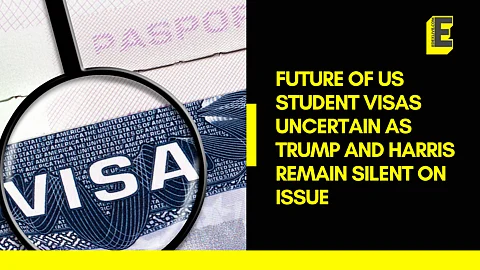

With the US elections just two days away, the voting on Tuesday, November 5, will not just be important for Americans but is set to decide the scenario of global politics for the next four years.
The future of student visas, along with the work and training visas for graduates, remains uncertain with the upcoming election.
According to Ben Waxman, CEO of consulting firm Intead - International Education Advantage, which assists universities in attracting international students, many policies — ranging from the allocation of consular officials to the processing of visas abroad and the duration of students' stay and work in the US are liable to be changed "with just a stroke of a pen" courtesy of the US president.
No discussion on student visas
As per Reuters, student visas have not been a prominent issue in the election campaign and have not been addressed in the debates between Republican candidate Donald Trump and Democrat Kamala Harris.
The only notable yet vague comment from Trump came in June during a podcast, where he suggested that students graduating from US colleges should receive a green card to remain in the country, although he holds a strong notion against immigration.
In response to inquiries about future student visa policies, Karoline Leavitt, the Trump campaign's national press secretary, stated that the former president intends to close the border and initiate the largest mass deportation of undocumented immigrants in history on the first day of his new administration.
While Harris has not detailed any future policies on the campaign trail.
The Visa game
Reuters reported that around 1,00,000 foreign students graduate from a US university every year. The State Department issued nearly 4,50,000 F-1 visas last year, the main student visa that allows a student to pursue their education in the country.
The main challenge comes with the H-1B visas, which allows a student to temporarily work in the US post their graduation.
For the next fiscal year, only 1,14,017 H-1B visas were granted out of approximately 4,42,000 applications, resulting in an acceptance rate of just under 26%, reported Reuters.
As these contenders in the Presidential campaign have not yet spoken openly about the issue, this may leave students and migrant job-seekers in uncertainty due to the probable tightening of policies.
